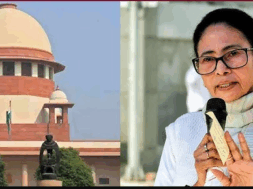
Manas Dasgupta
NEW DELHI, July 17: The Karnataka government has decided to take a re-look at its earlier decision to impose job reservation for locals in the private sector companies in the state after facing some severe backlash from the industrial houses who threatened that the move could drive away companies from the state.
While the chief minister Siddaramaiah deleted the social media post announcing “100 per cent reservation for Kannadigas” in private sector jobs in group C and D, which in any way was said to be a wrong information, the minister for commerce and industries MB Patil said a decision on the quota would be taken after discussing the issue with all the stakeholders.
After some industrialists expressed their concern, Mr Patil provided reassurance, saying “I have seen that many people have apprehensions… we will resolve this confusion… so that it does not have any adverse effect…” Mr Patil promised that a team comprising the Law Minister, IT-BT Minister, Labour Minister, and himself would discuss the issue with the Chief Minister before passing the bill.
“There is no doubt that protecting the interests of Kannadigas is of paramount importance. However, industries also need to thrive. It should be a win-win situation for both. Keeping this in mind, any confusion will surely be addressed,” he said. The bill was slated to be tabled in the Assembly on Thursday.
The Karnataka State Employment of Local Candidates in the Industries, Factories and Other Establishments Bill, 2024, was cleared in the Cabinet meeting chaired by Chief Minister Siddaramaiah on July 15. The Bill mandates that industries, factories and other establishments appoint local candidates in 50% of management positions and 70% in non-management positions.
Earlier the labour minister Santosh Lad had announced that the government had decided on the reservation of jobs for the local population at 50 per cent for management-level employees and 70 per cent for non-administrative jobs while pointing out that “100 per cent job reservation for Group C and D” was a wrong information and the bill approved by the state cabinet on Monday nowhere mentioned of total reservation.
“At management level, it has been decided to provide reservation to 50 per cent of the people. At the non-management level, it has been decided to provide work to 70 per cent…” he explained. He also said if companies were unable to hire suitable skilled candidates from this restricted pool, they could then look at hiring people from outside the state.
“If such skills are not available (in Kannadigas) then the jobs can be outsourced. The government is trying to bring in a law to give preference to locals… if skilled labour is available here…” he said. However, he declared there is no dearth of talent in the state. “Karnataka has enough skilled workforce. There are so many engineering colleges, medical colleges, international schools… We are asking them to give 70 per cent of work to Kannadigas. If enough talent is not available they can bring from outside.”
The Chief Minister had said it was his government’s wish Kannadigas be given an opportunity to lead a comfortable life in their state and not be deprived of jobs in ‘Kannada land.”
The “discriminatory” decision, however, was not well received by business leaders, many of whom said the IT industry, on which Bengaluru (and Karnataka) has made much of its fortune, would suffer. The decision elicited strong reactions from industry leaders, such as Kiran Mazumdar Shaw and Mohandas Pai.
“As a tech hub we need skilled talent and whilst the aim is to provide jobs for locals we must not affect our leading position in technology by this move. There must be caveats that exempt highly skilled recruitment from this policy,” remarked Ms Shaw on X.
Biocon Executive Chairperson Kiran Mazumdar-Shaw was more circumspect; she welcomed the proposal but called for “caveats that exempt highly skilled recruitment from this policy.” “As a tech hub we need skilled talent and whilst the aim is to provide jobs for locals, we must not affect our leading position in technology by this move. There must be a caveat…” she said on X
Mr Pai, who also took to X to air his views, called the bill “discriminatory, regressive, and against the Constitution.” In a strongly worded message on X, he said: “This is a fascist bill as in Animal Farm, unbelievable that @INCIndia can come up with a bill like this – a govt officer will sit on recruitment committees of private sector? People have to take a language test?”
Ms Mazumdar-Shaw’s company’s registered office is in Bengaluru’s Electronics City, an 800-acre industrial and technology hub that also has offices of Infosys, Wipro, Tech Mahindra, and others. Biocon, a global biopharmaceuticals enterprise, employs over 16,500 people.
Software industry body Nasscom, which represents India’s $200 billion technology industry, sought its withdrawal saying the bill “threaten to drive away companies”. “… the restrictions could force companies to relocate as local skilled talent becomes scarce,” the top industry body said on Wednesday. “The bill’s provisions threaten to drive away companies, and stifle startups, especially when more global firms (GCCs) are looking to invest in the state, it said. Expressing serious concerns about the provisions of the bill, Nasscom urged the Karnataka government to withdraw it.
Responding to these concerns, Mr Lad said he would speak to them. “We respect their apprehensions and their views. We will talk to them…” he said.
Mr Patil also pointed out the need for all states, not just Karnataka, to be at their “peak” in a competitive and globalised era of manufacturing and industrial revolution. “India is experiencing a manufacturing and industrial revolution… In this competitive era, states like Karnataka, Maharashtra, Tamil Nadu, and Telangana are striving to be at their best. It is of utmost importance for all states to be at their competitive peak,” he declared. The minister said Karnataka could not lose a “once-in-a-century race of industrialisation.”
Drafted by the Labour Department, the proposed bill claimed the jobs in question were being given largely to people from the northern states who were then settling in Karnataka. It proposed that Karnataka-based companies benefitting from state-provided infrastructure reserve jobs for locals.
The proposed policy, it is understood, reflected recommendations made by the Sarojini Mahishi Committee, which said large, medium and small-scale industrial units with over 50 workers had to reserve 65 and 80 per cent of Group A and Group B jobs for Kannadigas. All Group C and Group D jobs would be kept for Kannadigas, the report had said. However, no policies were formulated regarding these recommendations.
While a hue and cry has been raised over the issue in Karnataka, similar reservation in jobs for locals exist in many states including the prime minster Narendra Modi’s home state of Gujarat where 80 per cent non-skilled jobs are reserved for the local. The Karnataka measure also comes amid rumblings in recent months about similar initiatives in other states, specifically BJP-ruled Haryana, which will hold an Assembly election this year. The state – dominated by the BJP in the past two general elections – saw the ruling party and the Congress split its 10 seats this time.
The Haryana State Employment of Local Candidates Act was passed in 2020. It directed private firms in the state to hire local candidates – i.e., those with domicile certificates, for which the time requirement was dropped from 15 years to five – for 75 per cent of jobs paying less than ₹ 30,000. The proposal was piloted by the Jannayak Janata Party, then a BJP ally. Reservation for locals was a 2019 Lok Sabha poll promise by JJP boss Dushyant Chautala, who was also Deputy Chief Minister.
However, in November last year the Punjab and Haryana High Court struck down the law, calling it “unconstitutional” and saying the restrictions imposed could have a “far-reaching effect.”
And in Telangana, where the Congress recorded a big win in the November 2023 Assembly election, the party had promised 75 per cent reservation for locals in the private sector. The year before the Telangana government – then controlled by the BRS – reserved 95 per cent in all state-run companies.
In the wake of the Karnataka bill, the union minister Ramdas Athawale said is Republican Party of India demand the “Government of India and state governments” provide quotas for private sector jobs for candidates from OBCs, or Other Backward Classes. “Many people are there (looking for jobs in private sector companies) from SC and ST… but there is no reservation. Soon maybe government sector (companies) will also become private…”
“My party demands the Government of India and state governments give reservations to OBCs in the private sector. We are not opposing candidates from the General Category,” Mr Athawale said. Ramdas Athawale is a Minister of State for Social Justice and Empowerment.
Speaking about the Karnataka bill, CPI(M) Rajya Sabha MP John Brittas said it was discriminatory and not a “well-thought-out decision” by the Karnataka Cabinet. “Bengaluru was not built by Kannadigas alone, it was built by everybody. You cannot make such discriminatory decisions. This will provoke a flight of companies, drive away investors, and ultimately harm Kannadigas in the long run,” Brittas said. He added: “There are thousands of Kannadigas living in Delhi who don’t know Hindi. This bill is just to create a divide.”
Politicians like Jayant Chaudhary, whose RLD is part of the National Democratic Alliance, said the reservation was “regressive and bad economics.” “Karnataka State mandating up to 100% reservations in Private sector for locals is regressive & bad economics! I have spoken on this previously as well & I believe such measures by any State are violative of constitutional rights of all Indians!” he said.
Pro-Kannada activists, who have welcomed the cabinet’s decision to clear the reservation bill for locals, have slammed Mohandas Pai and Kiran Mazumdar-Shaw, accusing them of making sweeping statements about the perceived lack of talent in the state. “This bill provides a cushioning effect for Kannadigas. It doesn’t mean that any Tom, Dick, or Harry on the street would be appointed for the job,” pro-Kannada activist Chethan Jeeral stated. Jeeral also mentioned that the Karnataka government was not moving forward with the bill unilaterally but was taking suggestions and consultations from existing bodies into account.













